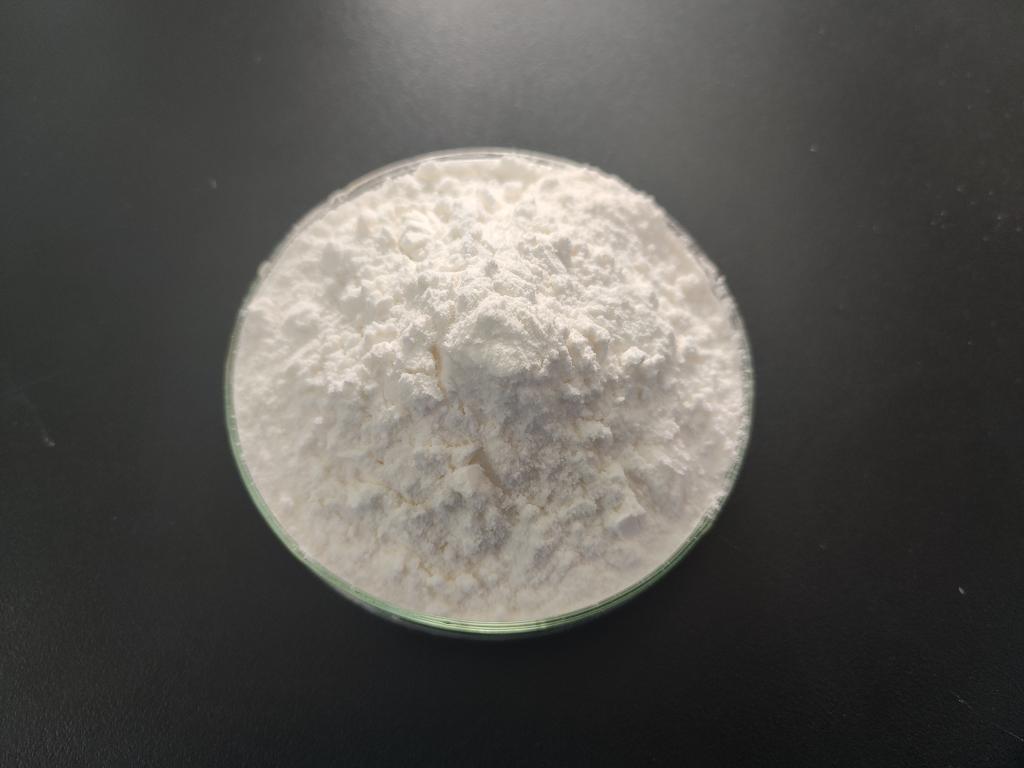Tel:+8618231198596

News
 CONTACT
CONTACT
 CONTACT
CONTACT
- Linkman:Linda Yao
- Tel: +8618231198596
- Email:linda.yao@dcpharma.cn
- Linkman:CHARLES.WANG
- Department:Overseas
- Tel: 0086 0311-85537378 0086 0311-85539701
News
ε-Polylysine hydrochloride is a natural antimicrobial agent.
TIME:2024-03-21
Origins and Production of ε-Polylysine Hydrochloride:
ε-Polylysine hydrochloride is a cationic polypeptide composed of multiple lysine residues linked by peptide bonds. It is naturally produced by certain strains of bacteria, including Streptomyces albulus and Streptomyces noursei. The production process involves fermentation of these bacteria under controlled conditions, followed by purification to obtain ε-Polylysine hydrochloride in its concentrated form.
Unlike synthetic antimicrobial agents, ε-Polylysine hydrochloride is derived from renewable resources and undergoes minimal chemical processing, making it a sustainable option for various applications.
Mechanisms of Action:
The antimicrobial activity of ε-Polylysine hydrochloride stems from its ability to disrupt the cell membranes of microorganisms. As a cationic peptide, ε-Polylysine hydrochloride interacts with the negatively charged components of bacterial cell membranes, leading to membrane destabilization and permeabilization. This disrupts essential cellular functions, such as nutrient uptake and energy production, ultimately resulting in cell death.
Furthermore, ε-Polylysine hydrochloride exhibits a broad spectrum of antimicrobial activity, targeting a wide range of bacteria, fungi, and even some viruses. This versatility makes it an effective weapon against various pathogens encountered in different environments.
Applications in Food Preservation:
One of the primary applications of ε-Polylysine hydrochloride is in food preservation. As a natural antimicrobial agent, ε-Polylysine hydrochloride helps inhibit the growth of spoilage organisms and foodborne pathogens, extending the shelf life of perishable food products. It is particularly effective in controlling the growth of Gram-positive bacteria, such as Listeria monocytogenes, Bacillus cereus, and Staphylococcus aureus, which are commonly associated with foodborne illnesses.
ε-Polylysine hydrochloride can be incorporated into food packaging materials, applied directly to food surfaces, or added to food formulations during processing. Its stability under a wide range of pH and temperature conditions makes it suitable for various food products, including dairy, meat, seafood, bakery, and ready-to-eat meals.
Advantages in Medical and Healthcare Products:
In the medical and healthcare industries, ε-Polylysine hydrochloride finds applications in wound care products, medical devices, and personal hygiene items. Its antimicrobial properties help prevent infections and promote wound healing in various medical settings. ε-Polylysine hydrochloride can be incorporated into wound dressings, surgical sutures, and catheters to reduce the risk of bacterial colonization and nosocomial infections.
Moreover, ε-Polylysine hydrochloride is used in oral care products such as toothpaste and mouthwash to inhibit the growth of oral bacteria responsible for dental caries and periodontal diseases. Its natural origin and safety profile make it an attractive alternative to synthetic antimicrobial agents in personal hygiene and cosmetic products.
Environmental Sustainability:
In addition to its efficacy and safety, ε-Polylysine hydrochloride offers environmental benefits that align with sustainability goals. Being derived from natural sources, ε-Polylysine hydrochloride has a minimal ecological footprint compared to synthetic antimicrobial agents derived from petrochemicals. Its biodegradability ensures that it breaks down into non-toxic components in the environment, reducing the risk of bioaccumulation and environmental pollution.
Furthermore, the use of ε-Polylysine hydrochloride in food preservation helps minimize food waste by extending the shelf life of perishable products. This contributes to resource conservation and reduces the environmental impact of food production and distribution.
Regulatory Status and Safety Considerations:
ε-Polylysine hydrochloride has been approved for use in various countries as a food additive and antimicrobial agent. Regulatory authorities, such as the U.S. Food and Drug Administration (FDA) and the European Food Safety Authority (EFSA), have evaluated its safety and determined acceptable levels for use in food products.
Studies have demonstrated the low toxicity of ε-Polylysine hydrochloride, with no adverse effects observed in animal studies or human consumption. Its natural origin and biocompatibility further enhance its safety profile, making it suitable for use in food, medical, and cosmetic applications.
Future Prospects and Research Directions:
As consumer demand for natural and sustainable products continues to grow, the demand for ε-Polylysine hydrochloride is expected to increase. Ongoing research is focused on exploring novel applications and optimizing production methods to meet market demand.
Future directions may include the development of innovative formulations and delivery systems to enhance the efficacy and stability of ε-Polylysine hydrochloride in different environments. Furthermore, research efforts aim to elucidate the mechanisms of action and potential synergies with other antimicrobial agents to maximize its effectiveness against resistant pathogens.
Conclusion:
ε-Polylysine hydrochloride represents a natural antimicrobial agent with diverse applications in food preservation, medical care, and environmental sustainability. Its broad-spectrum antimicrobial activity, safety profile, and ecological benefits make it a valuable asset across various industries. By harnessing the power of ε-Polylysine hydrochloride, we can promote food safety, improve healthcare outcomes, and advance towards a more sustainable future.
- Tel:+8618231198596
- Whatsapp:18231198596
- Chat With Skype







